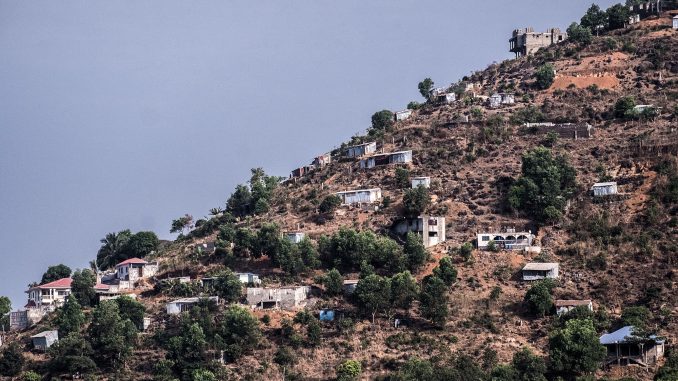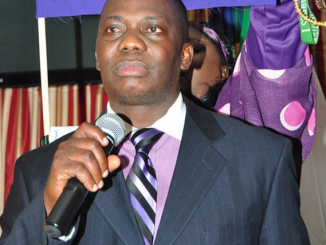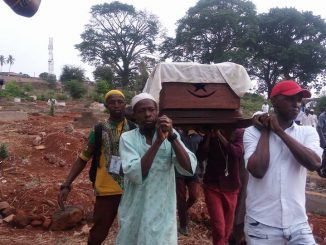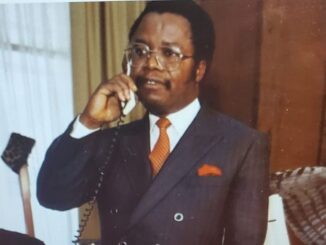

On 14 August 2017, a devastating mudslide claimed the lives of more than 1,000 people in the hillside village of Regent, 6km east of the capital, Freetown. Mudslides are an increasingly frequent occurrence in Sierra Leone. According to Dr Joseph Macarthy, Executive Director of the Sierra Leone Urban Research Centre (SLURC), they are caused, in part, by the widespread cutting down of trees, the result of ongoing residential expansion in Freetown’s hillside neighbourhoods. This deforestation, he explained, “leads to erosion [and]… the inability of the soil to absorb the rainfall.” With the land compromised, heavy rainfall and infrastructure failures such as poor drainage systems render mudslides more likely.
SLURC’s research and expertise has informed key aspects of an ambitious three-year plan from Freetown’s radical mayor, Yvonne Aki-Sawyerr. Launched on 24 January 2019, Transform Freetown is a holistic action plan designed, in partnership with government agencies and community organisations, to revolutionise the capital and address environmental resilience, human development, public health and urban mobility issues in the city. The plan has resulted in the installation of bins, rubbish collection and street sweeping services, generating casual employment for around 500 people. It also introduced the Cleanest Zone Competition, which rewards communities for efforts to improve sanitation and “beautify” their local areas. Even the city’s most treasured historical landmark, Cotton Tree – a reputed meeting place for freed slaves that dates back more than 200 years – has been adorned with colourful lights.
“positive impacts for informal settlers”
The mayor and Freetown City Council (FCC) have put in place an impressive number of practical initiatives, foremost of which are reforestation projects, to improve the current and future lives of Freetonians. In just a year, 23,000 trees have been planted across Freetown, and there are plans for a further one million during 2020 following the launch of the FreetownTheTreeTown campaign. Yirah Conteh, Chair of the Federation of Urban and Rural Poor of Sierra Leone (FEDURP/SL), which has been pivotal to the Transform Freetown agenda, emphasises the significance of reforestation for people living in the capital’s most vulnerable informal hillside and coastal settlements. “Reforestation will create positive impacts [for] informal settlers”, he said, highlighting the link between deforestation, flooding and water shortages in the city.
Alongside reforestation efforts, FCC has also undertaken waste management, flood mitigation and infrastructure development projects. Freetown’s gutters, drains, waterways and bridges are being regularly cleared of silt and rubbish. This particular scheme, organised in partnership with the International Organization for Migration (IOM) in Sierra Leone, has provided business support to 80 waste collection micro-enterprises and created 800 jobs for young people across the capital. Speaking at an IOM event in November 2019, Aki-Sawyerr announced: “Today, the Sierra Leonean youth is now part of a change in narrative about Freetown when it comes to sanitation.”
“It’s a matter of wait and see”
FCC claims that Kroo Bay, an informal coastal housing settlement in central Freetown with a population of more than 6,000, was not submerged by floodwaters in 2018 because of flood risk and waste management interventions. Dr Macarthy, however, is cautious about attributing this solely to the mayor’s recent efforts. He argues flooding has been intermittent since 2015 and that efforts to address the problem started before Transform Freetown was launched. “To qualify that particular assumption, I think it’s a matter of wait and see”, he said.
Braima Koroma, Director of Research and Training at SLURC, agrees. Moreover, he believes the success of the Transform Freetown initiatives is the result “of collective actions, not only… what the mayor has done as part of the flood mitigation plan, but also the actors within those communities themselves”. Supported by the mayor, FEDURP/SL has set up Community-Based Disaster Management Committees and other capacity-building initiatives to enable community members “to identify their own risks and hazards, and possibly pool resources together… to address these different disasters they have in their areas.”
Safe relocation and forward planning
Many of the city’s informal settlements are built on unstable ground and lack adequate infrastructure. The “rapid rural-urban migration” that took place during the decade-long civil war combined with Freetown’s topography – it is a peninsula city sandwiched between the sea and the hills – encouraged people to build on “marginal lands inside the city”, according to Koroma. As Dr Macarthy explains, when combined with a lack of forward planning by the authorities, this resulted in poor-quality informal housing settlements springing up along the coastline and hills.
Aki-Sawyerr aims to address this issue through a “slum relocation programme” for which she is currently seeking funding. This would involve moving people living in areas threatened by landslides to safer places with adequate infrastructure, access to the city, and minimal disruption to their livelihoods. Alongside this, FEDURP/SL, which advocates a “relocate where necessary, and develop where possible” approach, is working with FCC to “upgrade” the most at-risk informal settlements. FCC is also addressing the lack of affordable homes and plans to build 5,000 “low-cost housing units” by 2022.
Freetown is one of the world’s most overcrowded cities and 35% of its residents live in informal settlements that are particularly susceptible to infectious diseases. Ignoring their health needs poses serious risks for society as a whole, yet a 2019 SLURC report revealed that informal settlements do not even feature in the government’s 2017-2021 National Health Sector Strategic Plan. In an article for the International Institute for Environment and Development (IIED), Professor Eric Fèvre of the University of Liverpool and IIED researcher Cecilia Tacoli called for greater investment in basic infrastructure in informal settlements and “an overhaul of current approaches to urban planning and development” to prevent the spread of diseases like Ebola and Covid-19.
New Ministry of Environment – a force for change?
A key lesson to emerge from the efforts to build environmental resilience in Freetown is the importance of long-term collective action involving the government, the council, NGOs and, crucially, the informal settlement communities themselves. Dr Macarthy notes that Aki-Sawyerr has been able to harmonise the efforts of research, non-governmental and community-based organisations that previously worked in silos towards common goals. Commitment from the Government of Sierra Leone, which in 2019 established a new Ministry of Environment, is also vital for pushing these environmental issues forward, he believes.
Progress is slow but Conteh argues positive environmental change is taking place in Freetown and that the mayor “is doing her best”, though he and SLURC are concerned “serious financial limitations”may “impair some of these efforts”. Transforming the city may be an uphill task, but the mayor, FCC and a network of researchers and development partners appear resolved to finding sustainable solutions to complex urban challenges. The results from their efforts so far suggest that with political and financial backing and a commitment to long-term, systemic change, Freetown has the potential to become a dynamic, resilient and sustainable city –one tree at a time.
SOURCE –HIDDEN VOICES



